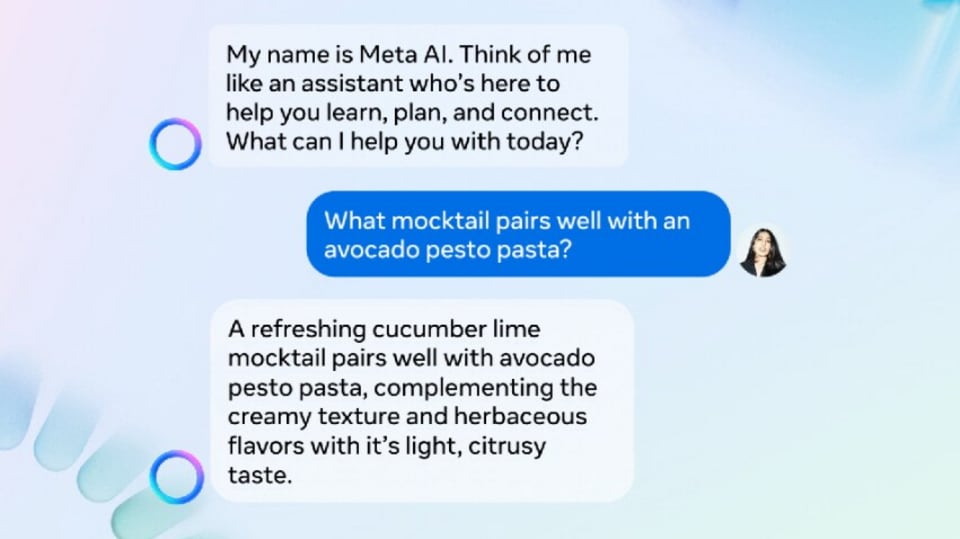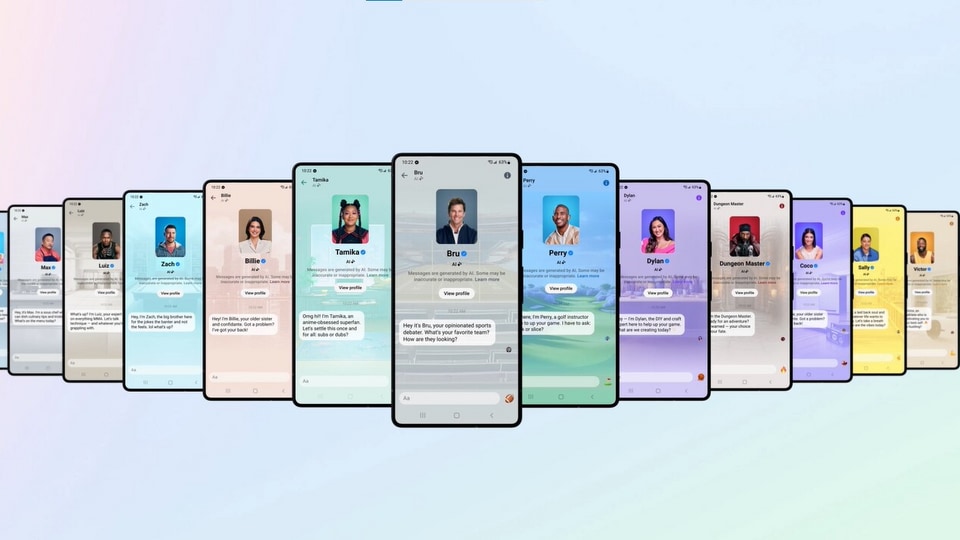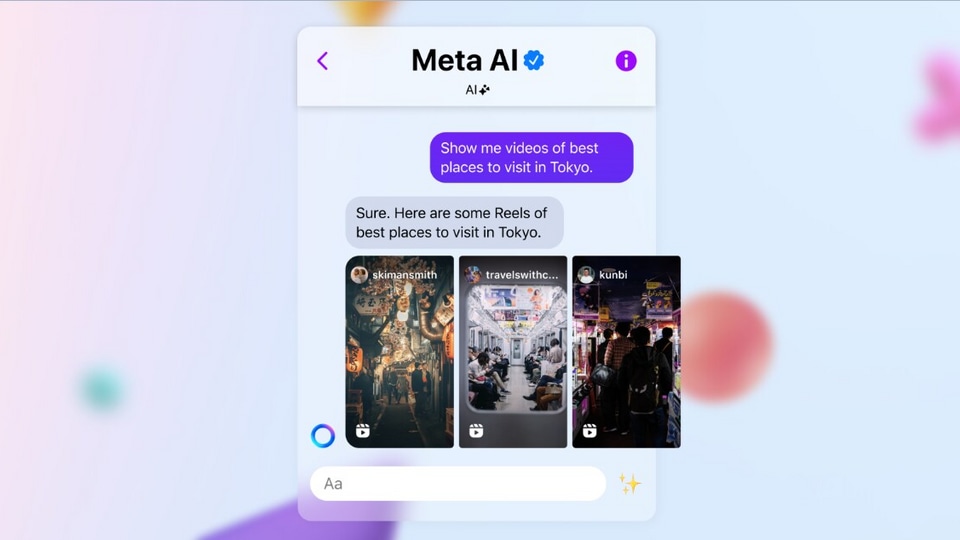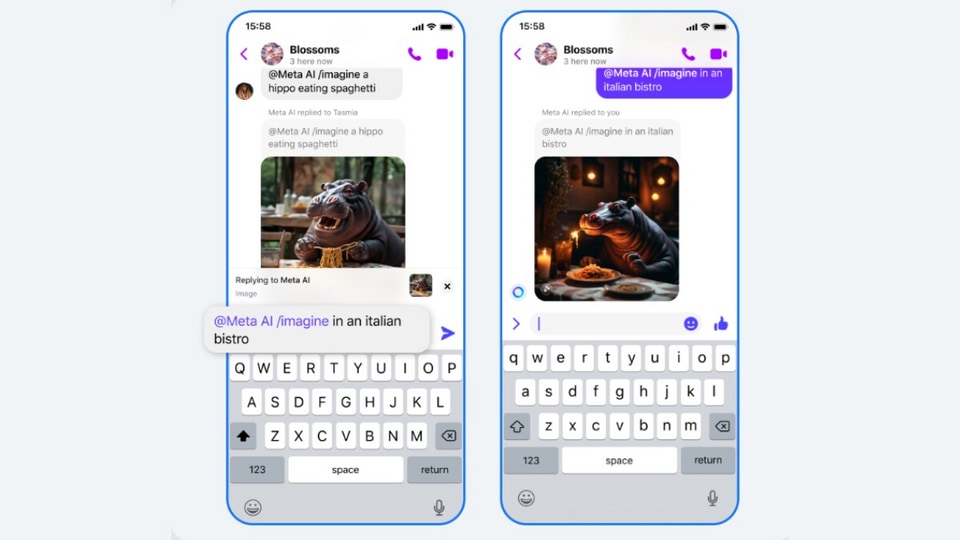Do You Want Mark Zuckerberg Snooping in Your Closet? AI Is Even Going Into Pendants, Glasses
AI is going into pendants and glasses. That could become a profound new invasion of privacy that makes us all more guarded.







 View all Images
View all ImagesAvi Schiffmann is an entrepreneur with a crazy idea that might become our new reality. Recently, he went on a podcast and then wondered afterwards about how he'd presented himself. Instead of asking a human being for feedback, he asked a pendant he'd been wearing around his neck during the recording. It told him he needed to be a better listener.
The round plastic bauble known as Tab, the main product of Schiffmann's wearable artificial intelligence startup, had a tiny microphone that fed a real-time audio recording of his daily interactions to an artificial intelligence model. Tab had some tips.
“You… abruptly changed the conversation topic,” the device replied via text to his phone. If Schiffmann had acknowledged something his interviewer said, that “would have made you appear more thoughtful.” Tab goes on sale next year for $600. A rival called Rewind will sell a similar pendant for $59. Tech giants are exploring similar products.
It's virtually impossible to escape the all-seeing eye of companies like Google and Meta Platforms Inc. when we're online. Now those companies have an opportunity to watch our real-world lives through wearables, which could make today's online surveillance business look like something out of the Stone Age. An explosion of powerful artificial intelligence systems that can “hear” and “see” has led technologists to create devices that can effectively be AI's eyes and ears. ChatGPT kicked off a race to build more powerful AI systems that are now “multimodal,” meaning they don't just process text, but audio and visual images too. Instead of being stuck in our pockets, new devices can be worn on our eyes or around our necks, like Schiffmann's pendant.
The new wearables craze is coming to our face too (a decade after Google Glass). Several technology companies including Meta, Google, Snap Inc. and Amazon.com Inc. are all said to be developing glasses that use forward-facing cameras and powerful AI to “watch” the world around us. Mark Zuckerberg recently showed Meta's glasses giving him wardrobe advice.(1)
While that might sound useful to the sartorially challenged, we should prepare ourselves for a world where AI is monitoring and even judging our interactions, a world where people are likely to become more guarded as a result. If you thought Instagram was making people more socially conscious, just wait for real-time watching and listening tech that compels them to be on their best behavior, always.(2)
What makes this situation really disturbing is the possibility of large tech firms using wearable AI tech as a new opportunity to snoop on us. Meta, which is developing the smart glasses, is almost completely reliant on advertising, which contributes about 98% of its revenue. Being able to “see” the clothes in our closet – as Zuckerberg was demonstrating -- would present a tantalizing opportunity for its advertisers. Perhaps they could recommend a new pair of slacks at a discount in real time to be delivered in an hour, before your dinner date.
This level of access by tech companies would be a much more profound invasion of personal privacy than what we have today with digital assistants like Alexa and Siri, which don't have powerful AI models that can analyze audio or video and generate a personalized analysis. A pair of glasses or pendant could end up recording highly personal moments, as well as third parties who might not want to be on camera. Meta's current version of its glasses, which cost $300 and don't use AI, have a tiny white light that comes on when the camera is activated, but that's the extent of giving other people a say in how they're recorded. Rewind, which makes the $59 listening pendant, says all data is stored locally on the device.
Meta, Google and Snapchat primarily make money by collecting our personal information and then targeting us with ads. If they start to do the same through a new crop of advanced wearables, we could find ourselves in the midst of a vast new, corporate surveillance network, not to mention more disconnected than ever from the people around us.
(1) Tech reviewer Marques Brownlee also asked Meta's glasses to describe a pair of men sitting in front of him in a podcast studio. When he told the glasses to make its description funnier, the AI replied: “Well, well, well. Look what we have here. It's two people sitting in a radio studio looking like they're about to host the most epic podcast ever.” Clearly, comedians need not worry about being replaced any time soon.
(2) In workplace studies, the so-called Hawthorne Effect crops up whenever people know they're being recorded. This is why medical staff wash their hands 55% more often when they know they're being watched by cameras or other people.
Catch all the Latest Tech News, Mobile News, Laptop News, Gaming news, Wearables News , How To News, also keep up with us on Whatsapp channel,Twitter, Facebook, Google News, and Instagram. For our latest videos, subscribe to our YouTube channel.































